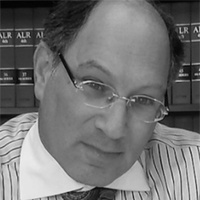Butler Criminal Lawyer, Maryland
Sponsored Law Firm
-
 x
x

Click For More Info:
-
Isaac Klein Attorney at Law
1 N Charles Street Suite 350 Baltimore, MD 21201» view mapAccident & Injury Law You Need Isaac To Defend You!
Issac Klein has been serving the citizens of Maryland since opening his practice in 1982. If your claim cannot be settled for a fair amount, he can prepare to file suit and go to trial.
800-768-4560
Bruce L Lamb
DUI-DWI, Car Accident, Traffic, Personal Injury, Criminal
Status: Deceased Licensed: 68 Years
John Joseph McVeigh
Lawsuit & Dispute, Criminal, Business, Accident & Injury
Status: In Good Standing Licensed: 45 Years
Bradley James Neitzel
Family Law, Litigation, Juvenile Law, Civil Rights
Status: In Good Standing Licensed: 26 Years
Gerard Francis Miles
Family Law, Divorce & Family Law, Criminal, Accident & Injury
Status: In Good Standing
Frank J O'Donnell
Juvenile Law, Other, Administrative Law
Status: In Good Standing Licensed: 32 Years
 Isaac Klein Baltimore, MD
Isaac Klein Baltimore, MD Practice AreasExpertise
Practice AreasExpertise
